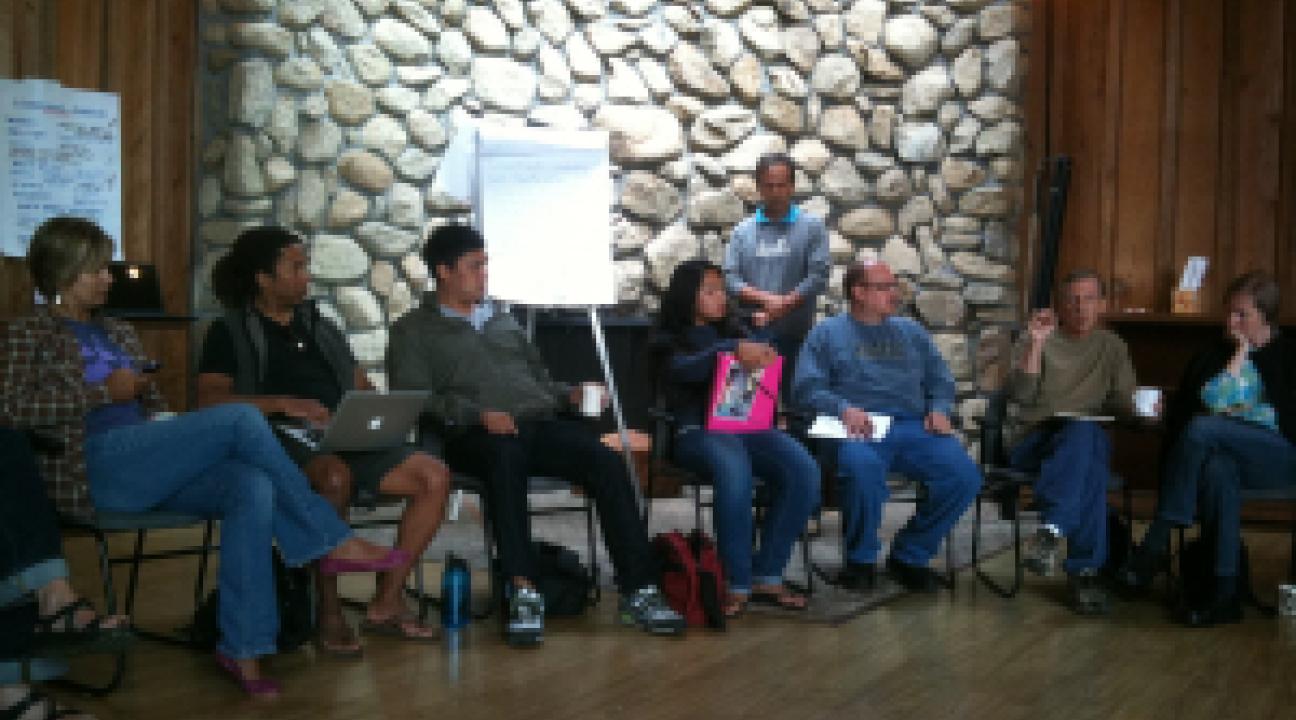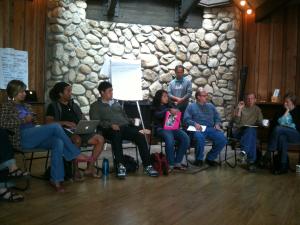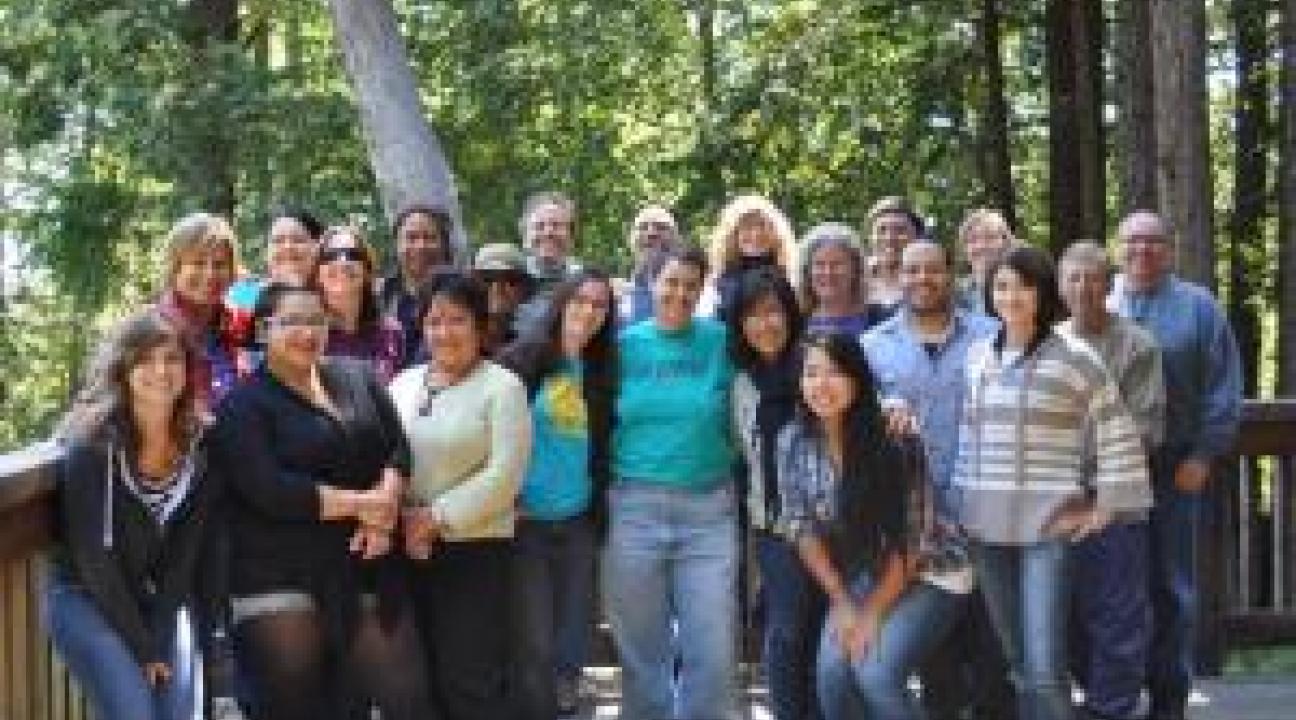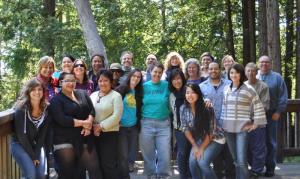From Intimidation to Social Justice Organizer in 3 Days
CCE Student Assistant Natalie explains the experience of being in the redwoods of Ben Lomond for three days with other students, faculty and staff who share her interest in social justice work.
Earlier this month I had the great opportunity to attend the First Annual Social Justice College Retreat representing the Center for Community Engagement in Ben Lomond, California. In all honesty, I did not know what to expect as I was faced with the reality that I was going to be in the boondocks- hidden in the vast dense coastal redwoods for three days completely isolated from civilization. I had come to find out that this experience would better equip me for making change in campus issues surrounding social justice. Throughout our time at the Sequoia Retreat Center, a group of about 27 people including faculty, staff, and students representing nine Northern California college campuses, engaged in conversation surrounding social justice.
I came to find out that social justice is more complex than I had originally thought. Through the depth of our conversation, I learned that social justice is both a process and a goal that begins with awareness of issues including many aspects such as race and social status. It is the recognition of dignity among every human being that requires equality, equity, and solidarity. Social justice requires complexity and overcoming barriers. It is an understanding of individual responsibility and interconnectedness between everyone.
In the beginning of the retreat I was somewhat hesitant because there was a lot of "university jargon" going around. I felt a little disconnected being a student--and was unsure where I would fit in, and let me tell you, it was a bit intimidating being in a room full of academic professionals. I also came to learn that I was the youngest person in attendance! In a way I felt helpless about making institutional change. However, things started piecing together as we had a student session where I learned that I wasn't alone and my concerns with the intimidating institutional rhetoric was something shared by most of the other students as well. As a student, I figured out that it is my duty to advocate for social justice through awareness of myself and others. Coming into the experience as a biologist with a very linear way of processing, I realized that I had to acclimate and refocus through a broader and more abstract cyclical lens to grasp everything that was going on. I quickly became more aware of the different dynamics of universities among faculty, staff, and students involved in social justice efforts and that the varying perspectives were a reflection of individual positions and agendas.
As seen above, our group spend hours each day conversing over ways to improve implementing social justice on our campuses.
On the second night, each of us shared an object, song, or idea that inspired our work in social justice. The most interesting thing that I learned collectively through this specific conversation was that the understanding of your own oppression and experiences make you see the world in a different way. This was a very heart-warming exercise which helped me discover that everyone has something to bring to the table despite different backgrounds.
The subject of social justice is so complex that is requires adjusting to many different aspects. To embed the idea of social justice on campuses is simply not an easy task - talk about unifying and forming campus wide events was a strong idea throughout our time there. I definitely expanded my knowledge about implementing social justice and for me personally, the group process is far more beneficial to development than an individual process. Ultimately, I was able to leave the retreat with a level head about the issue and I've even agreed to serve on the organizing committee for next year's retreat! I hope that the second annual Social Justice College Project Retreat at the Sequoia Retreat Center will be just as successful.

Author: Natalie Hambalek





